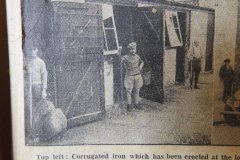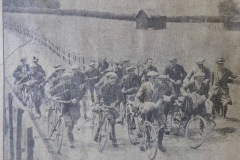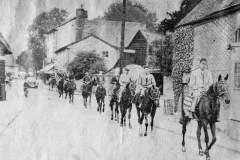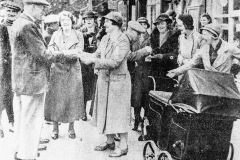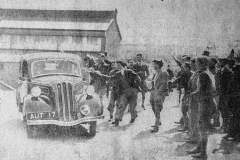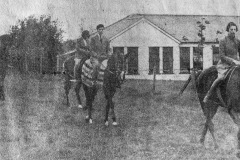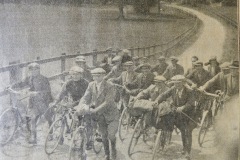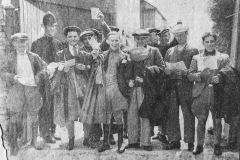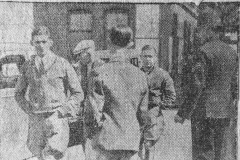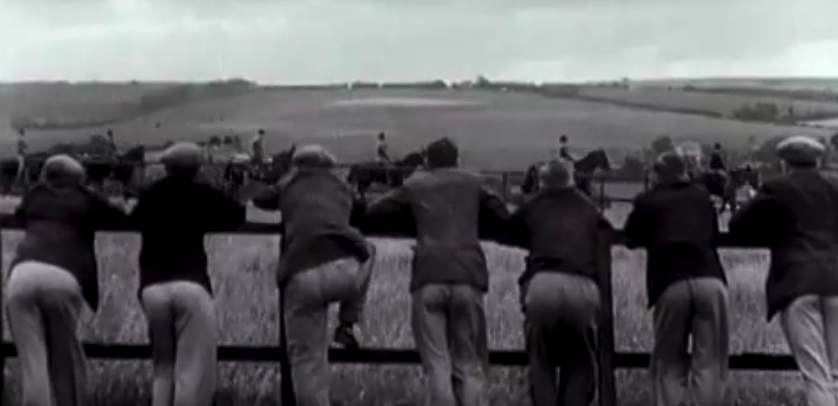
On the 21st May 1938, 300 Lambourn stable lads went on strike for better pay. They wanted a rise in their wages from 40 shillings a week to 50 shillings a week.
Work was then scarce, and several outside stablemen and girls volunteered their services, thus weakening the stable lads’ cause.
Fred Templeman, then training, said ‘The strike will not make any difference. With these girls we could get along until Doomsday. If the Newmarket lads come out in sympathy, as has been proposed, it will alter things, but if the strike is confined to Lambourn we will continue without trouble.’
The girls were given quarters in a village a few miles from Lambourn and were escorted by the police to the stables at 6 a.m. each morning. The stable lads claimed that the transport workers would support them, thus preventing horses getting to Epsom, and the trainers prepared to use non-union lorry drivers.

Ethel Mannin, the Industrial Correspondent from Reynolds News went to Lambourn to investigate on May 29th 1938:
“Horses Kept Quiet for Girl Blacklegs“

The boys are not worrying. As for the young ladies – they grinned; four had been thrown that morning….. Racehorses are a somewhat different proposition from hunters and hacks.
I went up to the stables for the express purpose of meeting these young women who are reported as regarding the whole thing as an adventure , and “something to tell our grandchildren”. I wanted to find out why they should want to pass onto their grandchildren the story of how they did their best to prevent the men from earning 45 Shillings week from getting 50 Shillings.
I found them walking the horses round the paddock, a bunch of the lads leaning against the rail and making derisive remarks as they passed.
In the course of a chat the men told me that the horses were being kept on a diet of hay and water, to make them manageable for the young ladies. The young ladies, in their interviews with the press have not, of course, mentioned this.
“We want to help.” said their spokeswoman “after all, somebody has to do the work!” I observed pleasantly that the obvious criticism of that was that this desire to be helpful was not exactly helping the men in their struggle for a living wage.
Why should these young women think or feel any differently? They have never had to earn their living; Strikebreaking to them is just fun, a larc, an adventure, to these young women sewed lightly back legging 5 shillings which means so much in a working class home is merely the price of a couple of cocktails, less than the price of a couple of lunches. I left the stable and returning to the village called on some of the wives of the strikers I told them there had been a good deal in the papers about the young ladies and in an article I planned I hope they would get a chance to express their views.
They expressed them to me with a will. They described Lady Wright’s young ladies as trying to take the bread out of their mouths. “What else can you call it?” a woman who is the mother of six children demanded.
What these women want to know is, why, if the blacklegging young ladies consider themselves such sports, they haven’t the courage to move an inch without they are surrounded by police? “think of it” said one contemptuously “they are so well protected that not even another woman may get near them! If they were the sports they think they are they’d come and meet us face to face.”
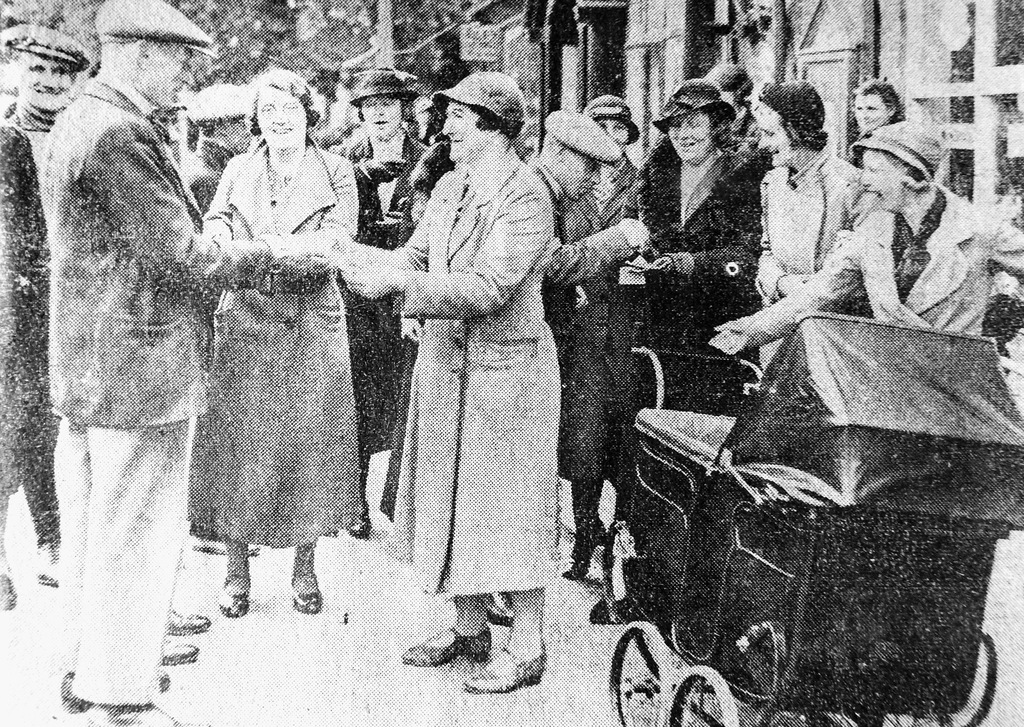
“And make them put in the paper about Gordon Richards,” she said. “he’s on the side of the lads, and they gave three cheers for him here the other day, but the trainers have told the reporters to keep quiet about this! They don’t want it to get around that he’s on our side! “
Their faith that if only it was all put in the Press and people knew what their men were out for, and what they were up against, everyone would be on their side, is touching and terrible.
The strike caused friction between trainers and stable lads and a number of trainers are quoted in the newspapers of 1938:
Mr F Templeman, who has some 60 horses in training, said “Stablemen are not the only people who can look after horses. I shall manage with scratch Labour until the trouble is over.”
Mr McVitty, another Lambourn trainer, said “It will not interfere with the training of my horses. I don’t care if they strike or not. None of the lads who do strike will be re employed by me.”
Newsreel from 27th May 1938
The stable lads at Epsom joined their Lambourn colleagues and informed their trainers that they, too, would withdraw their labour unless they were given 50s per week. A meeting was set up with the stable lads by the National Union of General Workers, to which the lads belonged, and a compromise was reached.
See also:
